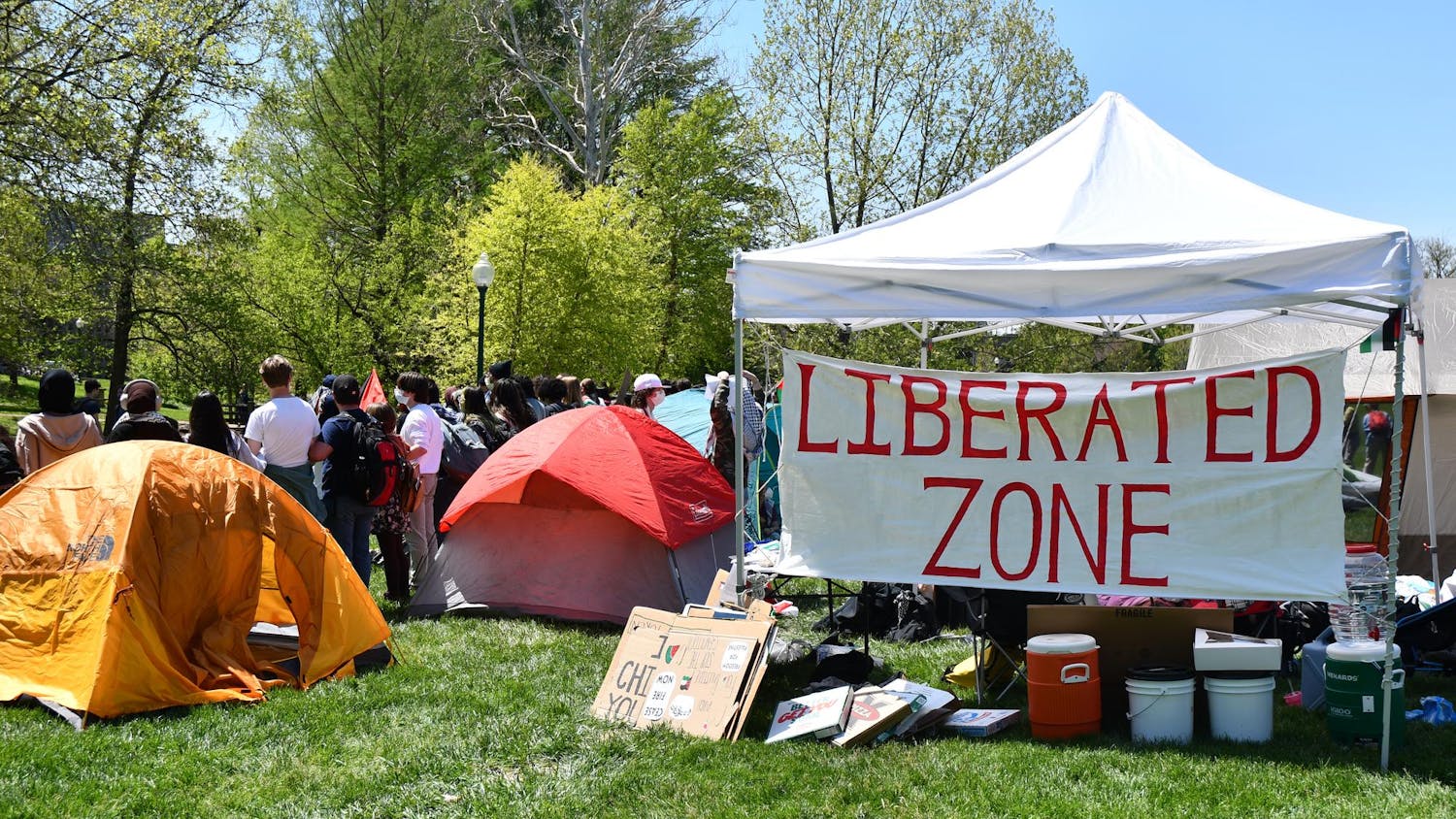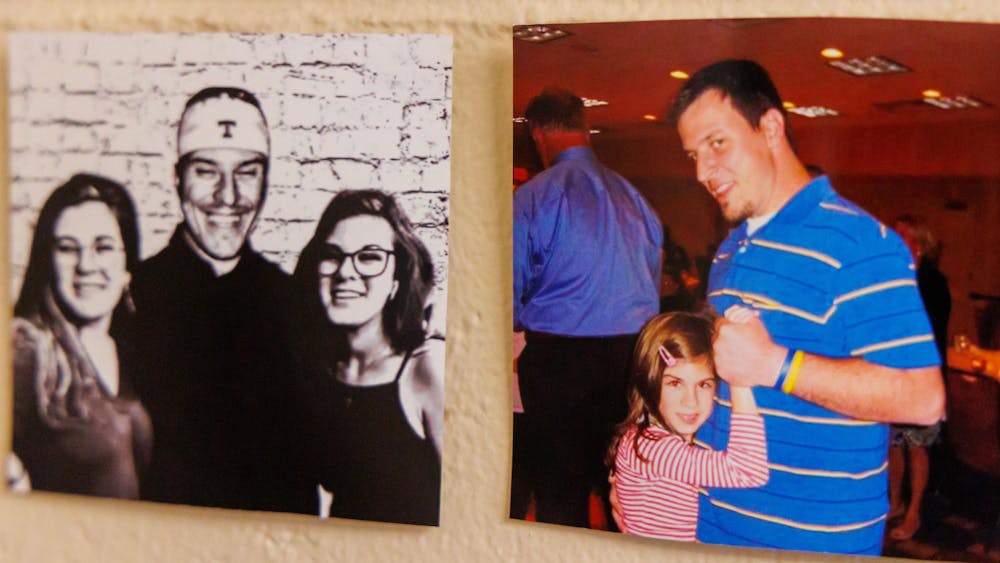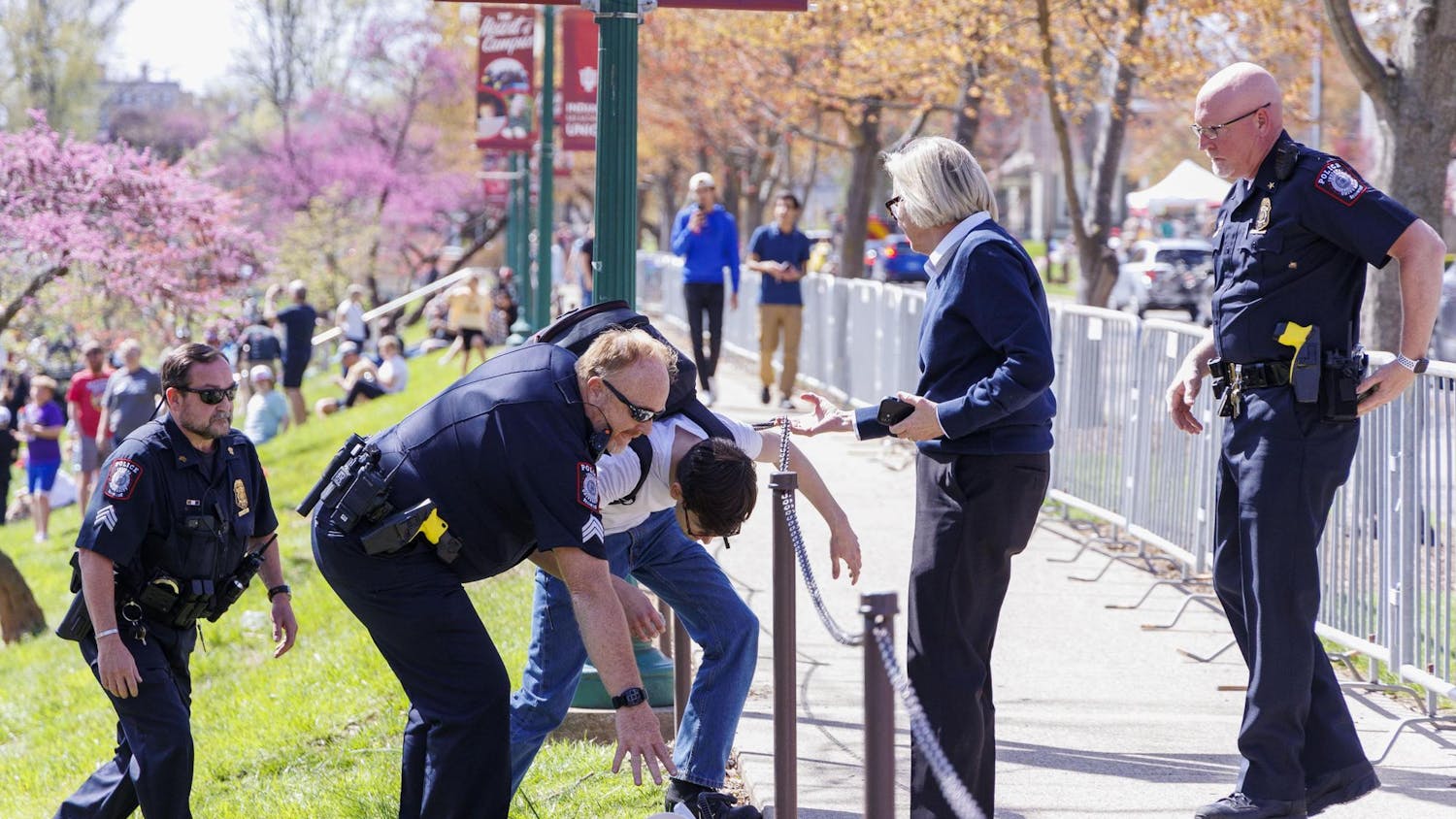As soldiers tore down the 40-foot bronze statue of Saddam Hussein in Baghdad, cheers erupted from Iraqi citizens, who began to beat the monument with their shoes in celebration of the end of Hussein's tyrannical regime. \nImages of U.S. troops taking over Baghdad last week will likely stand as poignant moments of the current war. But historians question how the history of the entire war will be remembered for years to come.\nJohn Bodnar, history department chair and director of IU's Center for the Study of History and Memory, is working on a research project that analyzes how people remember war by examining films and books about World War II. \nAfter analyzing such films as "Sands of Iwo Jima," "South Pacific," "Saving Private Ryan" and several others, Bodnar said he has came to the conclusion that people's memory of war does not always match reality.
SELECTIVE MEMORIES\nBodnar said the media describes the pain and suffering of war to a lesser extent than it honors those that fought. \n"There is a problem with the fact of how little people remember the pain and violence and death associated with war," he said. "Instead, we remember how effective the military agenda was."\nBodnar said people use selective memory to glorify war instead of showing its negative aspects.\n"If we are victorious, we tend to talk about heroes, but we forget those that died in the war," he said. "We tend to put a positive spin on the war."\nOne work Bodnar has examined is journalist Tom Brokaw's bestselling book, "The Greatest Generation," about World War II veterans. Bodnar said the book is a prime example of emphasizing the positive aspects of war.\n"He offered profiles of Americans who built fairly successful lives," Bodnar said. "They go fight the war and beat the Nazis, and there is no mention of the pain and the suffering and dying people. They go through the war experience and come out feeling better for it. Again, it is a highly positive and celebratory view of war."\nFor every cynical film about war, such as "Apocalypse Now," there are several films that glorify war heroes, such as "First Blood," Bodnar said.\nThis theory has not been exclusive to World War II.\nHistory professor Steve Stowe, who conducts research projects for the Center for the Study of History and Memory, said selective memory also applies to the Civil War.\n"Some historians see Americans who participated in the war as, over time, either 'romanticizing' it, seeing it as 'glory' rather than 'gore,' or by finding moral lessons in war -- moral lessons that were not so apparent when the war was actually taking place," he said. "The U.S. historian David Blight, among others, has argued persuasively that by the end of the 19th century, white Americans, north and south, were tending to recall the war as a kind of test of manly character, rather than a dispute over slavery, thereby taking slavery out of the picture. All of this is to say that today's memory of a past event is importantly colored by today's interests and needs, not necessarily by the past."\n Barbara Truesdell, assistant director of the Center for Study of History and Memory, said the center pays attention to these peculiarities about memory. Founded in 1968 as a research project, the center was originally called the Oral History Research Center when Bodnar took the helm in 1980. In February, the name was changed to reflect its refined goal to study memory of history, other than spoken word, in such media as books, movies, television and music.\n"Forgetting is just as important as remembering," Truesdell said. "It is very interesting what people choose to forget." \nTruesdell said variations in memory depend on the specific circumstances of who is remembering and what they are remembering. In traumatic situations, people can remember extremely precise details.\nIn an interview with the center, Indianapolis residents Roman and Maria Balon, Polish Jews who suffered under German control in 1944, remembered specific details decades after World War II. \nRoman recalled the exact number (15,000) of Jews shipped from his city to concentration camps. He also remembered the days, months and years of emotional experiences, such as the day his father was executed. He also recalled the weather during memorable events.
FORGETTING TEXTBOOKS\nBodnar said memory, more so than textbooks, can convey personal connections and vivid details.\n"When you analyze what people remember you get the personal aspect, the cultural parts that often get ignored in textbooks," he said. "The individual histories are important."\nStowe said he values that memories can provide perspective that textbooks cannot. In the classes he teaches about American history and the Civil War, Stowe requires students to read personal accounts of people.\n"Immediacy, personality, differences in opinion, vivid images," he said. "Not that textbooks don't have these, but written history sometimes tends to smooth over individual variation in an effort to make general statements."\nBut Truesdell said collected historical accounts are only as useful as their interpretations. She noted several situations in which someone's memory can be interpreted in different ways.\nIn one case, she visited The Library of Congress and observed a World War II Medal of Honor recipient giving an account much more modest than others' accounts of what happened to him.\n"His memory was completely different than his commanding officer who wrote up the report," Truesdell said. "Actually, he said he didn't really want the medal, but he didn't have any say in it."
REMEMBERING IRAQ\nAlthough some might say the conflict in Iraq is different from World War II, Bodnar said several similarities in the memory of all wars can be noted.\nBodnar said anti-war protests and the conflict between those who support the war and those against it will play a crucial role in memories of the war.\n"The debate will continue as a part of the memory," he said. "Just like the same debates that occur about Vietnam and dropping the atomic bomb, debate will continue. People will ask questions like, 'Who is responsible?' 'Was it a good war?' 'Was it a bad war?'"\nStowe agreed, saying memory will differ among people.\n"Historians make poor prophets," Stowe said. "But I would say that how the Iraq war is remembered will depend on who's doing the remembering. It will be contested and various, that is for sure, and hopefully, not seen only in terms of the 'winners' on the battlefield."\nOnly time will tell how the war will be remembered, but some signs could be apparent quickly, Bodnar said.\n"It will be interesting to see what memorials are built for this war," he said. "What symbol will be chosen for this part of our history?"\nThe depiction of monuments and memorials are important in analyzing how people remember history, Truesdell said. When the Vietnam Veterans Memorial was built, she said, many veterans were upset it was a name-covered wall rather than a heroic statue.\n"I know there was some debate about what memorials to create for Sept. 11," she said. "Some people wanted a statue of firefighters with the flag raised, but others say that others died beside firefighters, so it isn't a fair representation."\nBodnar said the war will be glorified in film and books in the same fashion as World War II.\n"There will be an effort to see it as a patriotic endeavor," he said. "The deaths in the war will be forgotten and the heroes will remain"





